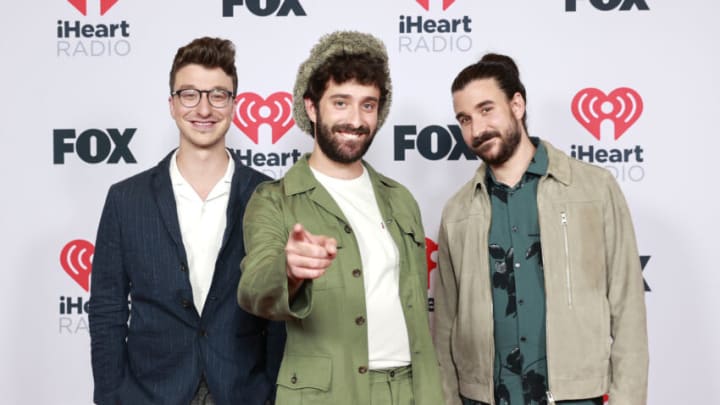This should be an AJR concert recap and review, detailing the captivating visuals of their OK Orchestra tour. However, that is not the case due the last-minute postponement because of what the band described on Instagram described as state restrictions. According to what AJR shared to their Instagram story, state restrictions prevented the group from requiring masks, having guests show their vaccine card, or presenting a negative Covid-19 test from the last 72 hours.
If there is a mandate in place, it was put there by Oklahoma’s Governor Kevin Stitt, who has had questionable (at best) leadership throughout the duration of the pandemic. However, there has been some difficulty in finding exactly what city or statewide restriction would prevent the safety measures the group wanted to enforce.
If you didn’t see on IG and you were planning on going to the AJR OKO Tour show in Oklahoma City: pic.twitter.com/DEENqHbJgw
— em 🪽 (@sadorchestra) September 13, 2021
Digging deeper into the situation
Local KFOR reporter and anchor Jessica Bruno touched on the subject herself on social media and in a report for the local news. Bruno also reached out to a different venue in OKC, which has it’s own vaccine requirement, and this is what the owner of the Historic Tower Theater had to say:
"We knew it was going to be a little bit difficult, but we also knew it was our only play,” Chad Whitehead, co-owner of the Tower Theater, told News 4. “We’ve heard from a lot of guests that are now actually excited to come to shows they were possibly not going to come to."
Quote via News Channel 4 publication
There are some variations between the two venues, the Zoo Amphitheater is an outdoor space, with a capacity of about 7,000. Whereas the Tower Theater is a smaller and more intimate space, with a max capacity of roughly 1,000. Moreover, when you go to purchase tickets from the Zoo Amp, you are met with this message during the third step of the ticket purchasing process:
"Here are the current rules in place for attending a 2021 concert at Zoo Amphitheater: When under a city ordinance, you will be required to wear a mask while in attendance at your event.Please distance when forming a line whether you’re waiting outside for entry or inside the venue at concessions and merch. Be mindful at all times of the distance between you and the fans who are not in your party.Please do not attend this event if you have Coronavirus, a fever in the past 48 hours, a new cough, shortness of breath, direct contact with a person who has a confirmed diagnosis, been in an area heavily affected with Covid-19 in the past 14 days."
It is the same for every concert scheduled there, including the rescheduled AJR concert set for June 7, 2022. It is already known what restrictions AJR has asked to have in place for their concerts. Therefore, based on these facts, all signs currently point to this being a venue decision not to grant the request of the artists. This is a big mistake on their part. I reached out to DCF concerts for a statement on the matter and have yet to hear back on the matter.
Patrons do not attend shows because of the venue, they attend shows because of the artist, event, or act taking place inside the space. To lose out on revenue from an event because of differing opinions pertaining to the pandemic is crazy. Given an entire year of revenue was already essentially lost in 2020.
This is not a good trend
This is also a trend that is extending beyond Oklahoma and the Zoo Amphitheater. Four-time Grammy winner Michael Bublé recently had to cancel his stop in Austin Texas at the Frank Erwin Center on his fall tour due to a similar issue, the venue failed to meet his request for particular Covid safety protocols. This is what Bublé shared on Twitter regarding the cancellation:
— Michael Bublé (@MichaelBuble) September 14, 2021
The pandemic is still evolving and becoming a more complex situation every day. Artists, venues, and cities themselves could all benefit from the revenue and foot traffic that marquee concerts bring in. Venues denying requests artists are making to keep themselves and their fans safe is blasphemy.
Let’s hope this trend of cancellations and postponements does not continue. If it does, the fate of live music will be at the most unclear stage as it ever has been.
